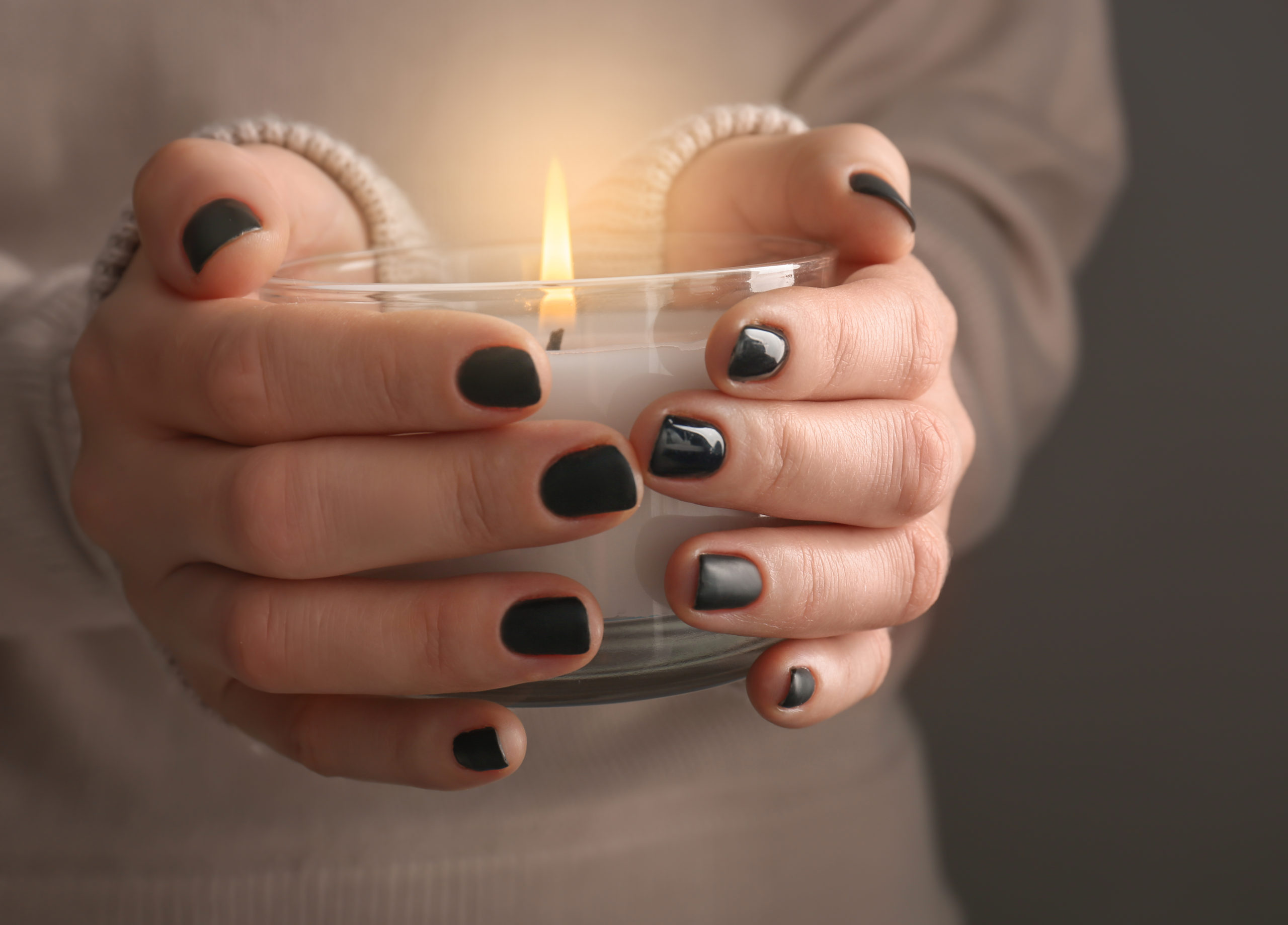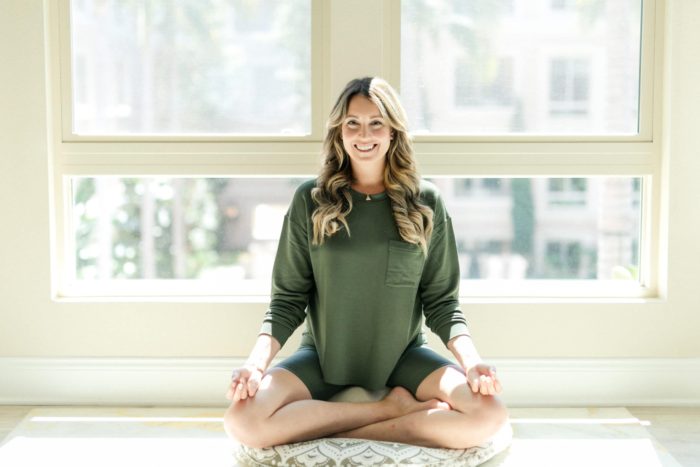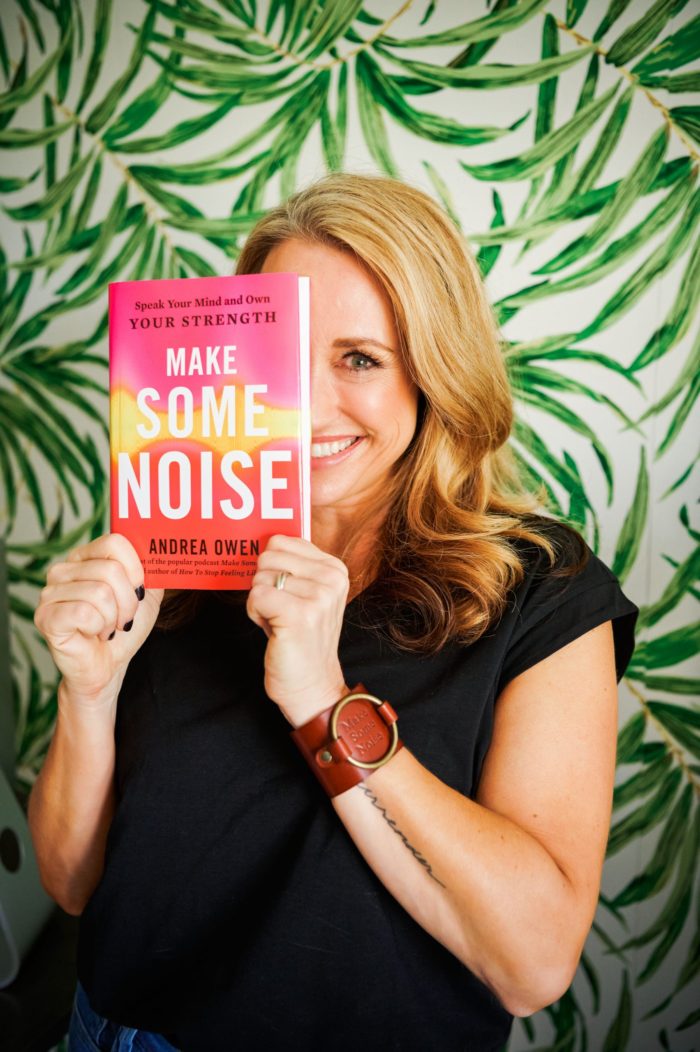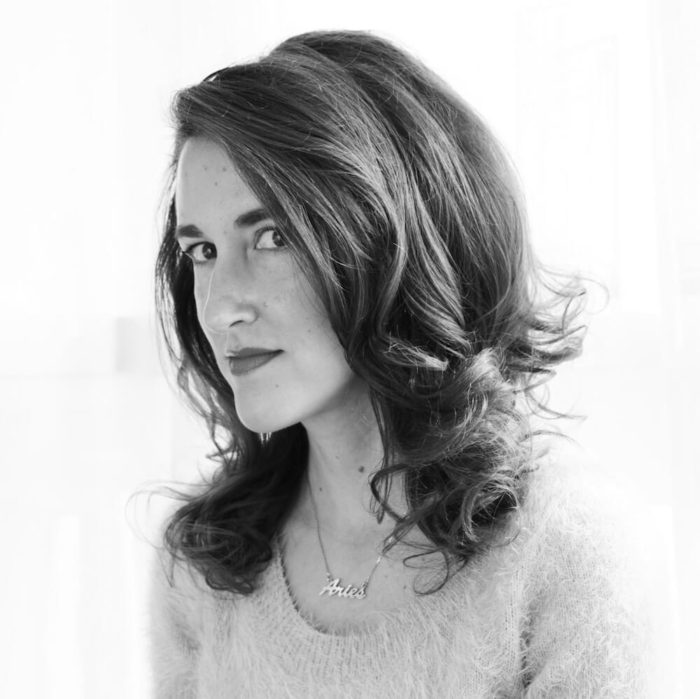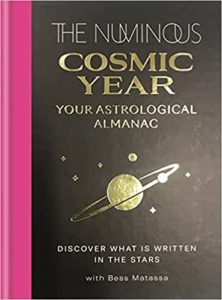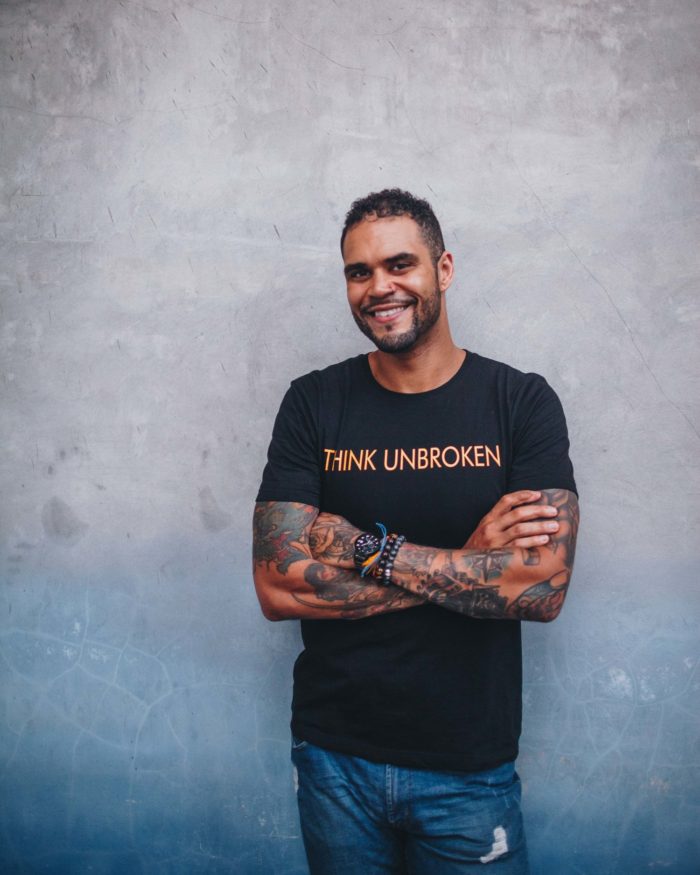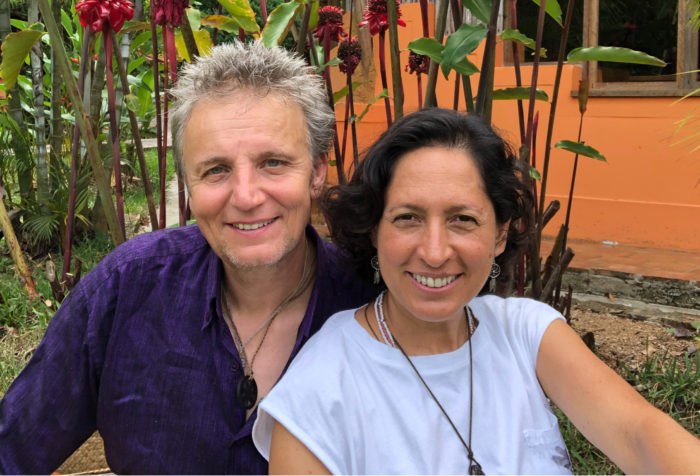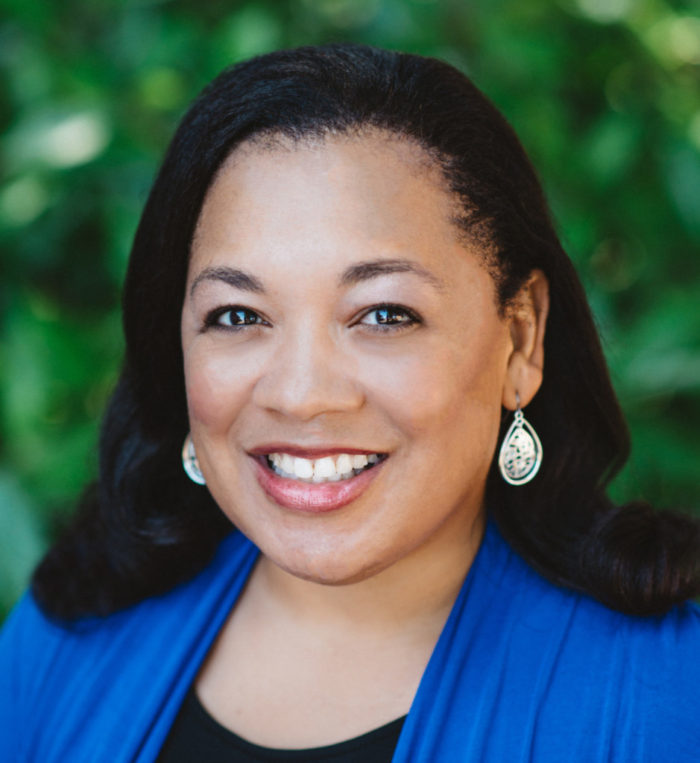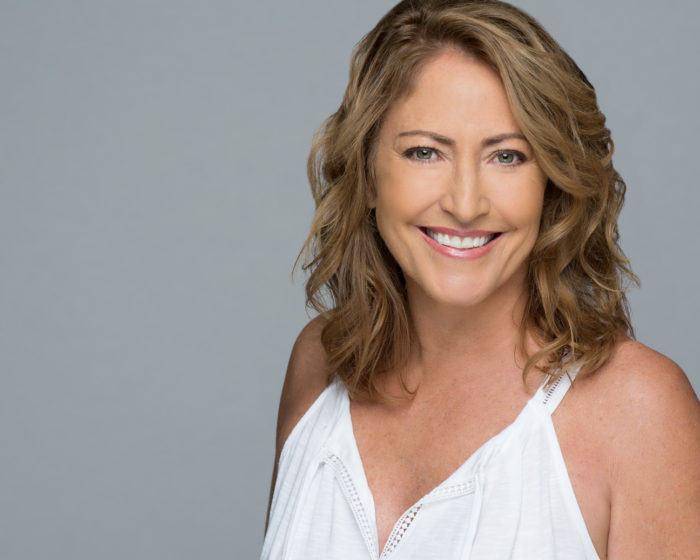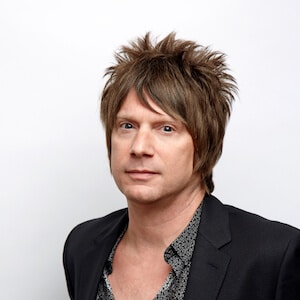Podcast
-
-
Cassandra Bodzak is a best-selling author, spiritual guide and the host of the podcast Divine Downloads. She helps women all over the world who want to make peace with their bodies, quiet their minds and reconnect with their souls. In this episode, we really dive into how we can bring the things we desire into our lives. As Cassandra says, we’re all manifesting all the time, but how do we do it consciously? This episode answers those questions. Specifically we dive into:
- How deeper body mindfulness can be a path to deeper spirituality
- How we can divinely design our lives
- The two paths to manifesting – either following our intuition or consciously creating desires
- The importance of belief in bringing our desires towards us
- The 4 phases of manifesting, and how we can move ourselves through those.
- Connecting to the truth of who we are
- Clearing resistance
- Embody the feelings and frequency of what we desire
- Take Co-Creative Action
Too learn more about Cassandra, and her signature program, Divinely Designing Your Life, head to www.cassandrabodzak.comYou can find Manifesting through Meditation here >> -
Andrea Owen is a Speaker. Life Coach. Author. and Hellraiser. She is creating a global impact in women’s empowerment with her books being translated into 18 languages and available in 22 countries.
She helps high-achieving women maximize unshakeable confidence, and master resilience. You can learn more at andreaowen.com.
We’re talking about some of the themes of her recent book – Make Some Noise. But she also shares so much of her own journey of healing and understanding in recent years including an ADHD diagnosis, and managing auditory processing disorder, a sub-component of sensory processing disorder.
Specifically this episode covers:
- Complex PTSD
- Andrea’s experience with Sensory Processing Disorder
- Neurodiversity
- Stories we tell ourselves about our lives
- What we need to make positive affirmations actually work
- Gender norms and internalized misogyny
- As women, what are we soaking up as truth unconsciously
- And how to apply one crucial question: What is my conditioning vs. what is my truth?
-
Bess Matassa is a modern day mystic. She uses both astrology and tarot as languages that can help bring us back to the selves we already are. Bess also has a PhD, and I mention that because you can tell she brings this same academic and inquisitive lens to her mystical work, which is one of the reasons why I think I really resonate with her message, which feels very grounded to me. You can tell she knows what she is talking about, and I didn’t hold back from throwing her all my random questions.
This is a deep dive into the invitations that are available to us in the years ahead, but also so much more. We touch on:
– What has been happening in the stars in the last two years
– What are the invitations available to us in 2022
– What the moon cycles can offer us
– What on earth retrogrades actually are
– And the elements of fate vs. free will and how they interact with astrology
Bess is running a 12-month immersive astrological experience, where she will take you through astrology and the calendar year. You can sign up for that up until Dec 21st 2021 > http://thestarparlor.com/course
Bess is also generously offering all Here to Thrive listeners 20% off a Full Astro & Tarot Reading before the end of 2021! Use the code COSMICTHRIVE at checkout here >> http://thestarparlor.com/shop/birth-chart-reading
We’re also talking about her new book with the Numinous: The Numinous Cosmic Year. This is part almanac and part astro planner. You can find that here: https://www.amazon.com/dp/1783254335?ref=exp_kate.snowise_dp_vv_d
Finally, you can work with Bess one on one. Find out more by heading to: www.thestarparlor.com
-
I challenge you to listen to Michael and not be inspired. His story is one of overcoming and finding the power within himself to commit to a new vision of what he wanted for his future. He can check the box on all 10 of the measures on the Adverse Childhood Experiences (ACE) scale, and talks here about his rock-bottom moment when he made the decision to do things differently. Michael is passionate and the definition of inspiring.
He is practical, grounded, yet calls it as it is. This episode includes:
– The importance of defining who you are
– Making the decision to do whatever it takes to be the hero of his own story
– Being relentless in the pursuit of what you want
– How mindset + action = self-actualization
– How a confused mind will always fail, and how important intention and clarity really are
– The importance of self-trust
– and how he applies his personal motto – “No excuses. Just results.”
His book is Think Unbroken. You can find that here: Think Unbroken Amazon
He works as a Coach and is also a Speaker. Find more details on his website here: https://www.thinkunbroken.com
And Michael also hosts the Think Unbroken podcast. Link here: https://www.thinkunbrokenpodcast.com
-
Patrick Sonqo is a spiritual teacher, mentor, coach, guide. It is hard to find the right word! He and his partner Cecie Sonqo create embodied enlightenment in the individuals they work with. The integrate sound, shamanism and wisdom to create unique journeys and experiences with their clients to help them raise their consciousness, and connect with their spirit.
In this episode we discuss:
- How Patrick transitioned from corporate to spiritual work
- Recognizing the power in our human form and experience
- How our inner connection can change our outer experience
- Spiral dynamics and the importance of our readiness to change
- What surrender looks like
- The shift from Homo Sapiens to Homo Luminous
- The energy dynamics with sound
And of course so much more.
Patrick & Cecie Sonqo offer small group programs, private sessions, and offerings for business settings to create energy and flow.
To learn more about Patrick and Cecie Sonqo, and their work, you can find them at www.sonqosworlds.net
P.s. the book he mentioned is called The Celestine Prophecy: https://www.amazon.com/Celestine-Prophecy-Adventure-James-Redfield/dp/0446671002
-
There are different types of tired, and a good nights sleep or a vacation isn’t the solution to all of them. Maybe your sensory systems are overloaded, or maybe you need more social connection. Dr Saundra Dalton-Smith introduces her incredibly powerful model around the 7-types of rest, and how we can address deficits in them.
Included in our discussion:
- What being functionally burnout looks and feels like
- Difference between rest and self-care
- How it is important to consider what type of tired you really are
- How we can apply the 7 different types of rest
- How a rest strategy can help us restore
Dr Dalton-Smith mentions the book, the Dream Giver as a personal favorite.
Her book, that outlines the 7-types of rest is called – Sacred Rest.
Here is a link to her TED Talk and article mentioned in the episode: https://ideas.ted.com/the-7-types-of-rest-that-every-person-needs/
You can find Dr Dalton-Smith at her websites: https://ichoosemybestlife.com or http://drdaltonsmith.com
Check back for full text transcript
-
Jennie Lee is a Yoga Therapist and trusted Spiritual Coach. She is also the award-winning author of three books on self-development, spirituality and yoga philosophy, included her latest title – Spark Change: 108 Provocative Questions for Spiritual Evolution.
You can learn more about Jennie via her website at: https://jennieleeyogatherapy.com
And grab and excerpt from Spark Change and the associated goodies at: www.jennieleeyogatherapy.com/spark-change
This episode we dive into the power of having a soul connection with ourselves, and more importantly, how we can foster that. Among other things we discuss:
- What Yoga Therapy is vs. Exercise Yoga
- What self inquiry offers us
- How we can self-reflection and introspect in order to connect with ourselves
- The 3-essential elements of spiritual connection
- How mediation can help with minimizing self-doubt
- And so much more.
To learn more about the Here to Thrive podcast and sign up for the once a month mailing list: www.heretothrive.com
Also, join Kate on Clubhouse for live conversations! @Kate.Snowise and look for the “Here to Thrive” club.
-
This episode we’re talking about the powerful practice of self-reflection. Self-reflection creates a crucial relationship with yourself, and allows you to make decisions that align with your deepest needs and wants. Self-reflective practices are an essential precursor to living an authentic life. We must know ourselves to know what is right for us.
This episode is centered around the 3 elements you need to foster to self-reflect. We touch on things such as:
- Building self-trust
- Intuition and our internal guidance system
- Creating quiet contemplative space
- Asking big questions
- And the power in building a relationship with yourself
Kate references the Franklin Covey Personal Mission Statement Builder tool. You can find that here: https://msb.franklincovey.com
Other resources can be found on the Here to Thrive website: www.heretothrive.com/shop
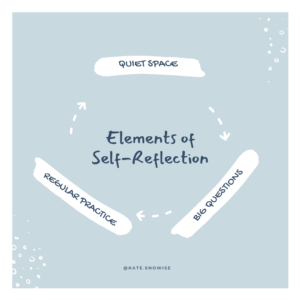
-
Johnny Dzuback is the co-host of the Art of Charm podcast, and a podcasting legend. He has been developing his own wisdom on all things self-development, personal growth and connection for a couple of decades. Originally in the music industry, Johnny is now a personal development expert who teaches men the “art of charm” and interpersonal connection.
This episode covers a lot, including:
- How the Art of Charm podcast is still around after all these years
- How he got to his personal development path and discovered his passion for human connection
- The importance of self-connection when connecting with others
- Why losing yourself is a good thing
- How confidence comes from knowing who you are
- How you don’t need to be confident to be authentic
- 3 Levels of Vulnerability and appropriate disclosure
The power in self-expression - The soul, fulfillment and more.
To find Johnny & AJ and their work, head to www.theartofcharm.com. You can also follow them on all the social media channels. Simply search Art of Charm.
If you’re interested in uncovering your Personal Values (as discussed in this episode), you can find a Personal Values Identification Kit in the Here to Thrive Shop. Head here: www.heretothrive.com/shop
Please find a full written transcript below
—-
#147. Johnny Dzubak: Connection with Yourself & Others
Johnny: The way I’ve always seen it is in order to have any sort of connection with other people, you certainly have to have that connection with yourself straight out. If you have a wonderful relationship with yourself, you will have loving and wonderful relationships with other people, so it always starts with you first.
Kate: That was Johnny Dzubak. He is one part of the ‘Art of Charm’ podcast duo. And we talked about it at the start of this episode, they are original podcasters, and Johnny has been developing his wisdom around personal development, and in particular, connection, charm, and the likes for a good long while now. We’re discussing so much in this podcast, mainly focused around the connection we have with ourselves and how important that is but also how we can have connection with others. He talks about his own life path and how he found his way to the personal development field, how confidence comes from knowing who we are. One of my favorite parts is where he discusses the three levels of vulnerability, and why disclosure and how we do it is important. And we talk about self-definition and self-expression—so many good, little, juicy pieces in here. If you want to find more about Johnny, you can find the ‘Art of Charm’ podcast or follow the ‘Art of Charm’ over on Instagram or your other social media platforms. But without further ado, let’s get the conversation started with Johnny.
Kate: Welcome to ‘Here to Thrive.’ I’m your host Kate Snowise. This is a podcast for people who are ready to step up and live a happier life. It’s for those of us who are dedicated to understanding ourselves and getting the best that we can out of this thing called life. It’s a mix of psychology and modern spiritual thought always with a focus on practical advice, so that you can take it back, and apply it to your own life. I don’t believe we’re here to merely survive, I truly believe we’re here to thrive, so let’s get going.
Kate: Johnny, this is fun to have you on Here to Thrive. Thank you for taking some time out of your day to speak with us.
Johnny: Thank you for having me. This is going to be fantastic. I was looking forward to it all week, and I am fully caffeinated and ready to chat.
Kate: Oh, I’m so impressed. I, too, have had a big coffee this morning, so we should be full of beans quite literally.
Johnny: Yes.
Kate: Johnny, you are one part of the two-part show that is the ‘Art of Charm,’ and I mean, in terms of podcast history, you guys are like O. G.
Johnny: Yeah, you know we started in 2007, and this was before Joe. And the ‘Art of Charm’ itself has evolved over the years. I mean, this is close to fifteen years. Certainly, cultural shifts and waves and technology shifts away, and you and I were even talking about that earlier, and it’s been a challenge just to continue riding along and following along with all the—the shifts when it comes to what’s going on culturally, technology-wise, and then of course, the self-development space and all of its—its evolution, and I certainly remember when telling people what a podcast was, just got you an odd look because they certainly don’t remember, or they didn’t know what it was at that point. And then also, I remember reaching out to publicists to get their authors and people on our show, and at that time, publicists hanging up on me, telling me not to call back, having me Google—“Pod what? I don’t even understand. What are you talking about?” It is getting the cold shoulder. And I’m sure, as you do, now, my inbox is full of publicists trying to get their authors and movie people or whatever on the show which is quite hilarious because we couldn’t—we had to beg, pound on doors endlessly and—and also educate people on what a podcast was, how large our audience was, and I certainly remember when those articles were coming out in early 2000s about podcasting and that they were going to be the future, and I remember snickering about it and even happy to have been a part of that, but well, those articles were quite right, weren’t they?
Kate: They were quite right. You know, when you say 2008, I can remember I was working in consulting in New Zealand, and my colleague, he—he said to me, “You’ve got to start listening to podcasts.” And I was literally like, “What the hell are you talking about?” And he was riding the early wave with you, Johnny. I was a little bit behind, I will admit. I want to know more about it. You see, the ride, how has it been? How have you had to evolve over this period?
Johnny: Well, there is—as I mentioned—there’s many different areas of which over fifteen years is going to be an incredible amount of change. The ‘Art of Charm’ itself has shifted in personnel. There has been partners who’ve been in and out of the company. AJ and I have been here since the beginning, and our vision for what we set out to do hasn’t changed, and that’s why we’re still here, and we’re still doing it. Where other people had come into the fold and left because well, people grow, people change their mind, people get interested in other things. So for AJ and I, our love, our vision hasn’t changed, so we’re still here because of that. Now as for podcasting itself—it certainly is gotten easier as people became educated about what it is, and it seems that social media—and podcasting is just another form of social media. Doesn’t everyone have their own podcast now?
Kate: Yeah. I—yeah—I have noticed. Everyone does seem to have their podcast.
Johnny: Yeah, which is—which is great and quite interesting, and—and we’re also at a place where the definition of a podcast is sort of money, right? People say, “Well, here’s my podcast,” and it’s a Youtube video that is a podcast, or I just did—you know I do interviews on Instagram every week. I’ll do something, or I’ll reach out to a guest or somebody who I’m interested in speaking to, and they view that as a Insta live as sort of like a podcast, so we’re now getting into this area where technology is developed to such a degree that everything is sort of money, but I think we are now going to determine what we define everything, as in how we use the technology to suit our needs, rather than technology being developed for a certain purpose, if that makes sense.
Kate: It totally makes sense. So, Johnny, one of the reasons I really did want to have you on the show is that the theme for the Here to Thrive podcast for February is human connection, and obviously this has been a crucial elements—human connection, influence, relationships, charisma—for all of the work that you and AJ have done with the ‘Art of Charm.’ How did you get on that life path? How did this become an interest or a passion for you?
Johnny: Well, for myself, in my twenties—I’m now 47—in my twenties, I was playing in rock and roll bands. I grew up wanting to play rock in rock and roll bands. My father played in a band on the weekends at the corner bar, and I used to roadie for his band that I would be going to bars in the Midwest at 14 years old to roadie for my dad.
Kate: It’s brilliant, it’s brilliant, Johnny.
Johnny: And I was obsessed with all of that culture—the going to the mall and—and buying the record you’ve been waiting for and hearing about for three months, and it’s finally arrived, and you take it home, and you put on the record, and then there’s the word, this CD or the tape, and you stare at the cover, and you examine, and you consume every piece of it from the producer to the engineer to every lyric in the art work. There was so much ritual and symbolism and tradition and all of that, and I found that incredibly intoxicating as a young child who grew up with his father performing and connecting those dots. And as I’ve gotten older and athletics started to separate some of the young guys, and they started getting attention from the ladies. Well, for myself, it was like, “What is going to be my thing?” Well, there’s all this music, and that’s what I’m extremely interested in—of course, you just—all those pieces, it was a natural progression for me, and so I grew up wanting to do that move in North Carolina, playing music, being in bands, working in venues and rock clubs, and as my 20s were winding down, the industry that I wanted to be a part of all of my life has changed rapidly and to a place where it was—well, it was completely different from what I wanted to be a part of. It was unrecognizable. And I was staring into my 30s thinking, “Well, do you even want to continue doing this? Because when you signed up for, the industry that you want to be a part of—it really doesn’t exist.” And social media was starting to creep in, and we’re talking about Friendster and Myspace. And I just knew that if what I wanted to be a part of is so unrecognizable to me now, what’s the future even going to hold? And the music that I like, it was just like very raw, pummeling rock and roll, and it was—and so that was—even when I was interested in performing this like past eight, I was like, “What is going…” You know, so I decided moving into my 30s, it’s like, “Let’s detach from all of this.” And start asking myself some hard questions that I’d never spent any time figuring out or having to answer. From a very early age, I just decided on a path. So I chose self-development as an opportunity to reflect and discover a lot of things about myself that I had not taken the time to figure out through my 20s, and it was at that point that one obsession was taken over by the newest obsession, which was self-development and helping others in connection and psychology and philosophy. And it—it just grew from there, and of course, because I am a very obsessive person, I wanted to be surrounded by other people who were involved in self-development. One thing led to another, and I’m now finding myself involved in and helping others, helping young men to get their lives together and—and be the best that they can be and that had led into a chance of meeting AJ on a weekend workshop, self-development workshop, and he, at the time, had been dabbling in podcast and getting a podcast started. And over that weekend, we had discussed about self-development and the future and what we wanted to do, and we have decided to team up and move to New York and to begin and start the Art Of Charm.
Kate: I love how kind of magical it is that you have this chance meeting with AJ, and look at what came out of it. Has connection always come easily and naturally for you or is it something that you had to work on?
Johnny: The way I’ve always seen it is in order to have any sort of connection with other people, you certainly have to have that connection with yourself straight now. If you have a wonderful relationship with yourself, you will have a loving and wonderful relationships with other people, so it always starts with you first. And I had not spent any time getting to know myself, and that was difficult, and you can—and I’m not going to sugarcoat it at all. I mean, my time playing in rock and roll was spent chasing a rock and roll lifestyle. I mean, I was working in bars on and—and when I wasn’t working, I was on the road, I was on tour. And I was fully influenced by having that sort of lifestyle and—and—and chased it. And I fully believe that all young folks should lose themselves a bit in order to find themselves. It’s difficult to really discover who you are if you don’t have to reel yourself back in. And I certainly had a – put in a lot of effort to be able to do that, and it was certainly a difficult task to rein myself in, but certainly, there was a lot of benefit to learning about routine and habits, and how the environment that you live in is dictated by the habits and routines that you put together. So all of this was an attempt and a journey in finding out who I was, and then being able to—to develop the relationships that I wanted to have. And I—you know, I’ve already said, I still have issues with that because I grew up in a family where my parents got divorced in my teens, and I’m a—I’m a bit a obsessive, and I like my alone time, and I think all of us have that journey in—in some way or another.
Kate: Thanks for saying that. It’s—it’s authenticity at the core, and I completely have been on that same journey, Johnny. You know I was losing myself a little bit in my 20s, having to come into my 30s and finding myself, and I’m not sure if most of us even have any idea who we are in our 20s, right? But it is that knowing of myself that when I reflect on it, being so sure of who I am, that has allowed me to show up in a real and authentic way with others.
Johnny: Yeah, there’s a lot of confidence in discovering who you are and understanding the habits and routines you’ve put together in order to gain traction in your life and get to know yourself. There is the confidence that you will gain from that, allows you to show up in any situation with a smile on your face because at least at a base level, you know who you are, so that allows you to show up and be present. If you don’t, then you’re too—you’re too focused inward and with your self-esteem and rather with a lot of anxiety of what is going on—what other people are going to see. But if you’ve done all that work, and you know who you are, and you’ve built yourself then you are proud to be able to—to show up in that manner.
Kate: I’m a little bit—I’m a little bit mind blown, Johnny, because, you know, it sounds so simple, but yet applying this sort of lens to my own life, it is the thing that has been mind blowing because I think about back in the day when I started Here to Thrive, I was embarrassed to even tell people that I read self-help books and potted so much of my own confidence and being able to connect with people is—is exactly as you have said. I’m really so certain of who I am that the judgment doesn’t impact me in the same way that it might have. I’m far less obssess with trying to win the approval of other people. I’m much more interested in having the approval of myself.
Johnny: Oh, it’s—it’s wonderful. You can—I can imagine. Well, I’ve—I’ve been through it, where having to explain to my rock and roll friends the new path that I was on, and they’re looking at me and just being utterly confused, and then I would imagine for yourself, it was the same. Once you start that path of getting to know yourself, you have to begin letting go of any of the—the influences or people that don’t want you to go on that discovery because there is a possibility for them either a) that they’re going to lose you or the b) they’ll be faced with their own dilemma and their—their own inadequacies as they see you grow, and that’s—that’s difficult for anyone to deal with, but it’s the truth in the fact of the matter.
Kate: Yeah, it absolutely is. Is it fair to say that you see confidence as a precursor to authentic connection with others?
Johnny: Hm, I—I don’t think so. The confidence helps you show up in a manner that you want to show up, but authenticity, you don’t need to be confident to be authentic. You just have to be open and vulnerable, and I think that’s where that—it’s difficult. I know a lot of people who are not very confident, but they’re willing to be vulnerable. And they’re—and they’re willing to be open about where they could use help and where they are working on themselves, but I just think you have to be, you have to be willing to be vulnerable to be authentic. And as you get older, I think that confidence comes into play as you—as you realize that your vulnerability helps with your connections, and most people are good people and want the best and—and want to help others. We’re all social animals at the end of the day. And you get comfortable with being vulnerable that takes time. Life in itself, just the nature of it, tends to be filled with trauma—trauma, loss for all of us, so the—the older we get, the more we dust ourselves off and the more comfortable we get with life cycles. Confidence comes into play.
Kate: Vulnerability, I couldn’t agree more. I feel like when I’m thinking of people—you know vulnerability is like a quick route to connection. If I feel like I know something about you, like you’re not giving me the surface level bullshit, that’s when I can connect with you. Do you feel the same way? That like when someone’s willing to open up, and I would—I would do the little caveat of appropriately, right? It’s not like you want to dump your crap on a complete stranger and that may not lead to connection. Would—would you agree with me on that?
Johnny: Absolutely, and in fact, I think Brene Brown coined a term called “flood lighting” where you just open up and dump all of this heavy stuff on somebody and expect them to accept you. There’s three levels of vulnerability and rapport building that we have to acknowledge and appreciate. And number one is light disclosure, which is lighthearted, amusing, funny anecdotes about yourself and the world around you, and if I told you about a time I was in third grade, sitting in the cafeteria with friends about to shake my chocolate milk only in that moment to realize I had already opened it and chocolate milk went everywhere, I’m giving you this embarrassing story, but yeah, this was—time has passed, and there is no risk or any way for you to use that information to manipulate me, so it’s—it’s low risk, but yet the emotional bids there are going to be surprised, embarrassment, even shame maybe. And of course, there is plenty of stories in your own life that you were able to connect with and share back to make that connection. That next level is going to be medium disclosure, and now, we’re dealing with information that’s more risky that could be used to manipulate me, which would be beliefs, opinions, feelings, and ideas about myself and the world around me. And then lastly, of course, high disclosure is going to be the understandable human weakness, which will be our fears and insecurities, and if you know what I fear or I am insecure about life, well, certainly you could use that information to manipulate me, and that’s going to be a much higher risk, and I’m only going to share that information with those who are the closest to me who have earned that information.
Kate: I have—you know, I follow Brene Brown’s work, but I have not heard that—that kind of staggering of the vulnerability and the disclosure, and that makes so much sense because I do think a lot of people have grabbed onto her message of vulnerability and as you just said, down the whole flood lighting thing and being like, “Well, but I’m being honest and open.” It’s like, woah, the relationship was not ready for that yet.
Johnny: Yeah, absolutely.
Kate: In terms of—you mentioned that you are a person that likes your own space, would you identify as an introvert, Johnny?
Johnny: That’s interesting.
Kate: You know, that’s interesting.
Johnny: You know, AJ would not consider me an introvert, but I—I would have to say I’m more of an ambivert because for somebody who’s willing and loves to be on stage and performing and—and I love that—that idea, and I love that form of self-expression. However, I don’t like crowded places, and I—also, I don’t own a television or if I’m not working, I’m usually reading, so there’s these two complete personalities that you would run into in meeting me. One is going to be a bit more studious and comprehensive in psychology and philosophy, and we can discuss these things all day. And then the other one is going to want to go out drinking beers and—and argue about the greatest Rolling Stones album.
Kate: Johnny, you and I, we share a lot of—of things in common. I am certainly an ambivert, and I don’t think the ambiverts of the world get enough credit.
Johnny: No. we don’t.
Kate: Like, it’s allowed. We can be this kind of walking contradictions because as far as I’m concerned, personality is not as simple as turning into the spectrum, so I’m with you, and I get it. The reason I asked that question is in your line of work, do you feel like even the quieter types need human connection?
Johnny: One hundred percent. And there was a meme that started when the pandemic kicked off that I was laughing about because everyone was like, “Well, I’m an introvert, doesn’t bother me. My life doesn’t change.” And the—and basically the meme was—it’s just showing how important human connection was to even to all of us, including introverts, where we’re even—we would be timing the time that we take out our trash, so that we would run into the neighbor just to say hello because we’ve been put in such an isolated situation that there was going to that human tendency and craving for connection will become overwhelming. Now, I can tell you, being an ambivert, the extroverted part of me is climbing the walls, where the introvert, he’s totally cool. We visit the neighbor, we say hello, and I get on zoom calls and chat with family, but it is—it is definitely a fight dealing with all this, but—but to the point of your question, we all crave connection. It’s just that some of us like in smaller doses than others.
Kate: Mmhm. So I know that you do a lot of work with sort of people and in the workplace. I’m kind of interested because I see our lives, as you just said, all of us are socially connected. We all need social connection. When we are in situations where perhaps we’re not with those people that are our nearest and dearest, like the workplace, how can we make positive first impressions?
Johnny: I love that question. So it is dependent on how you want to show up and you want to be seen. It’s important to understand that we are—we are expressing ourselves well before we open our mouths and start speaking, and that presentation, that self-expression is going to be in our presentation. How we dress, how we stand—it’s going to be in the words of other people use to explain who we are and introduce us. And all of those need to be congruent and stating that the same message, and energy is a very easily transferable thing, and the energy that we bring in or carry with us is going to speak loudly about who we are. So the first thing is show up in a positive manner. Show up with a smile on your face. It’s the first thing that anyone is going to see from you, and it—and it’s going to give the very first impression about who you are. A big smile, laughing, enjoying yourself—that goes a long way in getting people to take interest in who you are.
Kate: Mmhm. You know, coming back to what we were saying about confidence earlier. In my own nature, being ambivert, I can be very sort of loud, gregarious, outgoing with people I know well, but I have pretty high levels I would say—I’ve worked hard at it, and I’m much better—but you put me in a crowded room of people I do not know, and holy crap, like I want to sink into the floorboards, like I want to disappear, and I am not confident in those situations. And coming back to what you said earlier—you don’t have to be confident to show up and make connections. Holy crap, I fake it all the time, Johnny, like I purposely go into a room like that, say a bigger room or a networking event, and I put my shoulders back, and I walk in with a smile on even though it feels like the complete opposite of what is going on internally for me.
Johnny: Very interesting. There’s a—there’s a movie—it’s a Quentin Tarantino movie that’s called Pulp Fiction. It’s a very famous movie. I’m sure most people have seen it. There’s a specific scene that I always point to that well, you have to understand the situation that you’re walking into and how you want to show up, and be congruent in that situation. So for instance, there’s Vince Vega and Sam-Jules are going to the apartment with the suitcases in the beginning of the movie, and they’re talking about big macs, and they’re being silly, and they’re having fun, and they’re just being guys in a car having a conversation. They pull up to that building, and I believe it was Jules, turns to Vince and he says, “Get into character.” Meaning we’re now have to play a role. How we going to walk in? If we’re supposed to walk in and be the most intimidating people that these kids I’ve ever seen, then we’re gonna need to flip some switches in order to show up in that manner. That is no different than any of us going to a networking event or a job interview to get in character to present who it is we want them to see and fake it till we make it. As you get older and you get more comfortable flipping on those switches when you need to, it becomes second nature. If this is something that is brand new, well, it will be a bit uncomfortable. It will feel a bit weird. You may even feel inauthentic because this is going to be new for you, but you also know what the end result needs to be and what you are working towards, so you can either do yourself a favor and help yourself, or you can make this incredibly difficult for yourself and find yourself in the whole—the whole way and hope for the best. Now, I know how I wanna to go into that room. I know how I would help myself with this, so I’m going to show up. I am going through my shoulders back. I am going to put on a smile, and I am going to allow myself to work to become the person that I’m pretending to be. That’s why fake it till you make it is such a powerful idea, but it’s also why so many people get nervous about it because they hear the word fake it, but there’s no faking it. You have to help yourself out to become the person that you want to show.
Kate: Mmhm. Yeah, I think of it in terms of that lens of personality. I come from that background of personality psychology and—and I say to every person I work with, “Just because your natural disposition falls one way or the other, that doesn’t mean that you don’t have the choice to show up differently.” And that’s exactly what I’m kind of hearing here is. You’ve gotta—you’ve got to take responsibility for who you want to be and how you want to show up, and—and—and take those actions, right?
Johnny: One hundred percent. And the other thing about it is I have to take the same measures when I’m doing things for the first time where I know I’m going to be learning, meaning that I have to set myself up to be a – to be opened to knowing that I’m about to walk into a situation or to go online into a new program or platform that I never used before and be completely overwhelmed and be open to being overwhelmed as I slowly figure out and see how intuitive that the platform might be. And as I slowly learned how to crop this picture in this platform or do this thing, and I—I always laugh about this. I always say that when it comes to technology, I’m always at the level of my incompetence. It’s a—it’s a never ending series of—of frustration. I’m beating myself up because I’m trying—I’m trying to adapt with all the technology. I’m trying to be as resourceful as I can. I’m trying to be up to date as I’m maybe working on a new thing for Instagram or whatever it might be, and there’s learning involved. And for anyone who may be having an entrepreneurial spirit, there’s this idea, “Well, you just don’t worry about the things you don’t know. Hire people to do those things.” Well, that’s a great idea if the people that you’re hiring are very knowledgeable about what they’re doing. Unfortunately, there’s a lot of folks out there who do a lot of poor work, and if you’re not able to monitor how they’re going about your publicity or marketing, how are you supposed to know if—if what’s happening is the way it’s supposed to be working? Or if they’re hitting their—their marks? So if you have no familiarity with any of these things, then you’re not gonna be able to monitor the situation, and you’re gonna find yourself in a worse situation because you handed over the controls to other people. And so it’s—it’s very good for you to be—and this is the fixed mindset over a growth mindset of constantly finding opportunity to grow and—and strengthen yourself.
Kate: Oh, I love it. You know, it reminds me of —coming back to Brene Brown—her concept of ‘Fucking First Times,’ right? Like just recognizing that a fucking first time , or an FFT as she calls it, is going to be uncomfortable, but the discomfort is part of the growth, so ride the damn wave. There is nothing wrong.
Johnny: Oh, yeah. At this point, I’m just so used to being overwhelmed with technology that I’ve given myself just a lot of space to fumble through stuff and that has helped me out immensely where I’m not—I’m not upset with myself. I’m not beating myself up. I’m not wanting to throw my computer out the window.
Kate: You’re possessed now, Johnny. You’re possessed.
Johnny: Yeah, exactly.
Kate: When we’re talking about showing up, and you mentioned energy earlier, and that we are speaking and communicating with people before word comes out of our mouths, would you say the same is true when we apply that to technology? Are people—are we speaking through other mechanisms rather than just the words we throw on a page these days?
Johnny: Oh, yeah. I mean, this is where music and self-development tie together because it’s all about expression and self-expression and from the clothes that you wear to the language that you use to the art that you create. Anything that you create is an expression of how you might be feeling or what you’re seeing. I view myself as an artist just because I have that background, and in—in doing the ‘Art of Charm’ and working with so many people, thousands of men and women, over the last fifteen years, I have encountered so many people who are afraid to express themselves or are learning to express themselves. I had music from a very early age, as I mentioned. I was not playing—I don’t remember when I wasn’t playing guitar and—and helping my dad as a teenager but to encounter somebody in their twenties who are scared to express themselves, well, you can imagine how difficult that’s going to be to reach the goals that they have set up for themselves if they’re that timid. And so, self-expression, it can be done in—in so many different ways. I is something that we all should take out time to get comfortable with.
Kate: Oh, that is—that one gets me, self-expression. And I can totally—it totally makes sense to me how growing up with music, how you were already verse in that skill if you like, but you’re a hundred percent right that if—if we hold ourselves back from the worlds, if we don’t feel comfortable showing up and adding our contribution, then we are stopping ourselves from being a part of that social fabric of the connection of all of that, right?
Johnny: Well, this is where the technology works for and against us because anything that you create online, well, other people were going to see it. You know, just for our audience, as I was setting up Skype to get up with you, I accidentally hit the call earlier, and I was laughing about this. Now, I’m used to that because I do this all the time, and those sorts of mistakes happen, but I’ve also been with people who I’m showing—for instance, I was on Instagram live, and I was showing somebody how to use it, and they’re like, “Oh, this is so cool.” I’m like, “Yeah, what do you want to say? Like, “Wait, you mean we’re live right now?” Like, “Yeah.” And they start freaking out. And I’m like, there’s people who popped on it, who even knows if they were actually seen, but everything is recorded now. Everything — we have—we have young people who are walking around with all their deepest secrets, kinks, mistakes, and failures in their pocket. How are you supposed to detach and make changes in your life to become who it is you wanted to be if you’re stuck holding on to the past? And I worry about that because I do see young people who don’t have an opportunity or who are not free in making mistakes because when you live your life online, it’s all recorded. I’m—I’m a bit nervous of—of the result of that. What is the impact of that going to be, and are we going to have a whole generation who was afraid to put themselves out there? Or will there be a ridiculous gap between those who have learned to express themselves online and those who haven’t, and will that gap create inequalities? I don’t know. It’s—it’s interesting to see how this is going to play out.
Kate: It is interesting, and even in light of our conversation and coming back to those sort of three levels of vulnerability, which you could marry out to expression, where is the middle ground here with self-expression but not sort of spilling your guts out to everyone so it’s gonna come back and bite you in the ass?
Johnny: Yes, I see. I—you know, there’s so much stuff that goes online, and every time I get a glimpse of what the kids are doing, I’m terrified if that was just me or one of like, even—even Instagram. If you go under the discovery of Instagram, there is—and they just they—they fill it up with scantily clad teenage girls doing all these suggestive dances, and I’m like, “Oh, my god.” Now, listen, young people are always going to be a preoccupied with sex. They’re not gonna be able to help it. I was a young man myself and preoccupied with sex. The chemicals and hormones are flooding your system, there is a reason for that. You’re not going to escape that however.
Kate: I love it, however.
Johnny: [inaudible] You know, when I was a young man, and we were performing, there was a—I went through a stage where what I was doing performing—performance-wise onstage was—was way out there and—and flamboyant and as crazy as I can make it because we were trying to get attention and eyes to the band, to what we’re doing. And sometimes, when you’re playing in a club, and everyone’s preoccupied, so you’re trying to get their attention. So you are going out of your way to do that, but that performance is done, and you leave, and you go home, and you can either—you can forget all about it and think about how you’re going to go about getting people’s attention the next time, but when you’re putting it online, and it’s recorded, well. I don’t know, is it going to be that easy to escape from?
Kate: Mmhm. It’s about like when we’re talking about self-expression, it’s about learning. Learning, right? Like we all learn, and there’s certainly been times in my self-expression where I feel like I have, you know, it’s like the pendulum swinging like I’ve got a little too far, I’ve come back to the middle.
Johnny: Right.
Kate: Finding that middle ground takes a bit—takes a bit of time. Johnny, I ask a few intermission questions of my guests, so I’m gonna hit you with them now. You’re ready?
Johnny: Sure.
Kate: What is your favorite self-care activity?
Johnny: Well, I love—I love working out, and I also—I love running, and it’s been a little bit cold out here in Vegas, so I haven’t been out, but I’m looking forward to getting a little bit warmer. I guess exercise, running, that’s what I can do now, and that’s how I take care of myself.
Kate: You’re saying though that it is called in Vegas, and we were talking about how I live in Minneapolis. I mean, how cold, Johnny? Are you getting a bit?
Johnny: Well, let’s just say at night, it’s—it’s like it’s in the high thirties at this point.
Kate: Okay, I’ll give it to you. I thought it might be like sixty degrees, I was going to give you a hard time.
Johnny: You don’t think of Vegas in the winter as cold, but we’re in the desert, it’s a very cold air. It’s just snowed on the strip on Tuesday.
Kate: Okay, I’ll give it to you then. I—I don’t think you need to be running outside. Is there a book that you can think of that has perhaps touched you in an important time in your life?
Johnny: Yes, there’s a book called “The Art of Possibility,” and it is written by Benjamin Zander. And that book allowed me to understand and want to communicate to the best of my ability. And understanding that the words that I chose to express myself, the language that I chose is incredibly important and—and that it plays multiple roles, and it plays a role in – in my own programming. Everything you say consciously is programming yourself, subconscious. And it also goes into how others relate and then of course, marketing-wise, or persuasion and influence, the words, the language, the structures—they all play a role in how other people receive the messages, so that was one of the concepts in that book that blew my mind and that I had never put much thought towards in the past.
Kate: Oh, I’m gonna have to look that one up, it sounds good. Johnny, what’s a life lesson that took you a good long while to learn?
Johnny: Patience.
Kate: Tell me more.
Johnny: I think that goes with a lot of people. The older you get that you are—you don’t have a choice but to learn and understand patience as you slowly start to learn things and to go back to the level of my incompetence with technology, patience has been key in allowing me to adapt and learn new things and to be able to incorporate new technology and to make my own life easier, and as difficult as it may seem at times—it is frustrating—as I can get with myself, it is to take a deep breath, to give myself some credit that I’m working with something new, and that it’s okay and that I will learn it, and maybe even master it at least for my needs and purposes, just like anything else that I had put my—my mind to.
Kate: Oh, I like that. Take a deep breath, Johnny. Just channel the patience. With your discovery of personal development, do you ever consider the soul or something outside of us, and if so, what kind of language would you put to that?
Johnny: That is one of the greatest journeys that I think a lot of us go on in self-discovery. It is the the—the journey of philosophy, and that journey for all of us—as we get older, as we experience different things, as we see the world change, as things happen culturally—we’re looking at philosophical systems, and I have my own journey that I’m on right now. The way I see myself in the world and how the world works is different to me now than how I would answer this question in my twenties, it’s different than how I would answer in my thirties, and I would imagine, at 47, it’s going to be different how I look at it in my fifties. So—but to answer your question specifically, it is in relation to how you see yourself in the world and—and how you want to interact with it. Having a negative disposition and attitude will get you those results of having that sort of mindset in the world. I certainly learned it through my life that changing up my disposition of being a positive person, to look for the silver lining, to give value, to help others first and foremost before helping my—myself or looking to get value for myself, and understanding that I can get value for myself through helping others has given me a better lens to view myself in the world and maneuver through it, and getting those results as I get older, as I continue my philosophical journey, how I relate to the world might—might change, but I’m liking the results that I’m getting with in this manner ,and I’m going to continue to follow that and see where that leads
Kate: Mmhm, I like it. Okay, final one of this few intermission questions, Johnny. What does fulfillment mean to you?
Johnny: I guess there’s some aspects of that. There is a—there is a mission and goals that we all have, and we want to be fulfilled there. And then, there is also each day that we wake up, how we extract value throughout the day. And are we taking advantage of each and every day? And there’s a—there’s a fulfillment there. This is why so many people have difficulties going to sleep, and we hear about people staring at the ceiling, having anxiety, dealing with insomnia, feeling as if life is slipping by them one day at a time, and they’re not getting any satisfaction or fulfillment out of it, and what we are going to do to feel better about how we engage in each day. For myself, I’m huge in ACT—acceptance, commitment, therapy—in a value-based living. And I can—I can speak confidently that when I discovered value-based living, that how I engage in each and every day changed and also allowed me to go to bed easily, happily, excited for the next day. And so there is a fulfillment that I have been able to engage with there through value-based living, which the values have been backwards engineered from what—from my goals, so that every day that I engage in those values, I’m getting one day closer to the goals that I had set out for myself.
Kate: I’m also a big fan of the ACT and values-based living, Johnny. One final question as we wrap up today—this has been a joy, but, Johnny, if the Here to Thrive listeners take nothing else from this entire conversation, what is one thing you would like to leave them with?
Johnny: Well, let’s just go from the last question that you asked about fulfillment. I would ask all of them to think about what their core values are, what is most important for them and to arrange their day and their weeks, and how they are going to engage in those values. And to reflect on those values every six months to a year to make sure that you’re still engaging in what’s important to you, so that you’re not leaving points on the board and that you can go to bed happy and that you feel that you have won the day, and you’ve extracted what you needed out of it to feel good because if you’re feeling good, then you’re helping others around you feel good.
Kate: That was Johnny Dzubak from the Art of Charm. I feel like there were a bunch of golden nuggets in there, and it’s one of those episodes where we covered so many different things—from self-expression to knowing ourselves being a cornerstone of confidence to vulnerability to the soul and the journey we are all on—fascinating. If you want to find out more about the work that Johnny and AJ do, you can head to the artofcharm.com. You can also find the podcast wherever you listen to podcasts and check them out on social media. I’m a fan of theirs over on Instagram. Next month, the theme is on self-reflection, one of my favorite things like ever, and we will be going back to the every other week relay schedule. So, Happy 2021 people.
In the meantime, I’ve just got on to Clubhouse, and if you don’t know much about Clubhouse, Google search it first, but it’s kind of like a podcast meets Instagram. It’s like audio interaction in a live conversational format, and if you’re listening to this before the first of March, I am planning to do a Here to Thrive in conversation on the first of March at 12 PM Central Time, so come and join me like, let’s chat, people, and let’s chat. And if you guys show up there, I will certainly continue doing them every other week, so we’ll see how we go with that, right? Experiment. You can find me over there, at Kate Snowise. Or, maybe—I don’t know what will happen if you search ‘Here to Thrive.’ We’ll make a club if we—if we get going well, but in the meantime, it’s @Kate.Snowise.
Alright, team. In the meantime, if we don’t get to chat on March the 1st, take care of yourself, and keep thriving, beautiful people. Keep thriving.


